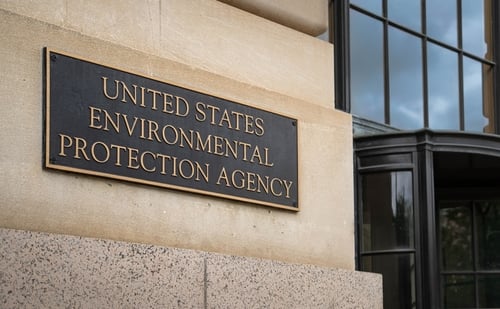Supreme Court will hear arguments on whether to stay EPA’s ‘good neighbor’ rule
U.S. Supreme Court
Supreme Court will hear arguments on whether to stay EPA’s ‘good neighbor’ rule

The U.S. Supreme Court will have oral arguments in February to consider an emergency petition to stay the U.S. Environmental Protection Agency’s “good neighbor” rule, which is intended to curb pollution that drifts to downwind states. Photo from Shutterstock.
The U.S. Supreme Court will have oral arguments in February to consider an emergency petition to stay the U.S. Environmental Protection Agency’s “good neighbor” rule, which is intended to curb pollution that drifts to downwind states.
The high court agreed Wednesday to consider a stay in four consolidated cases brought by energy companies, trade groups and the states of Ohio, Indiana and West Virginia, the New York Times reports.
Other publications with coverage include SCOTUSblog, Law.com and the Washington Post.
“The court’s brief order did not suspend the program in the meantime or add the case to the court’s merits docket,” the New York Times reports. “Oral arguments in cases that reach the court by way of an emergency application, as in this case, are quite rare.”
Steve Vladeck, a professor at the University of Texas School of Law, has said since 1971, the Supreme Court has had oral arguments on emergency applications only twice before, according to Law.com. Both cases involved challenges to the Biden administration’s COVID-19 policies, Vladeck said in a post on X, formerly known as Twitter.
The Supreme Court’s order allows the EPA case to also continue in the U.S. Court of Appeals for the District of Columbia Circuit, where opening briefs are due Jan. 26, SCOTUSblog reports. The appeals court had refused to stay the plan while it considers the challenge.
The rule required states to curb smog-causing nitrogen oxide that affects other states. Twenty-three states failed to persuade the EPA that its plans were adequate. In the litigation that followed, all seven federal appeals courts hearing challenges blocked the EPA action in 12 of those states, according to the New York Times.
Ohio has argued that mandated cuts “are potentially unachievable” and could leave the state with insufficient electrical generating capacity, according to the Washington Post.
The United States argues that imposing a stay “would impose negative health consequences and additional regulatory burdens on downwind states and their citizens—thus violating the central aim of the good neighbor provision.”
The cases are Ohio v. EPA, Kinder Morgan v. EPA, American Forest & Paper Association v. EPA and U.S. Steel Corp. v. EPA.

